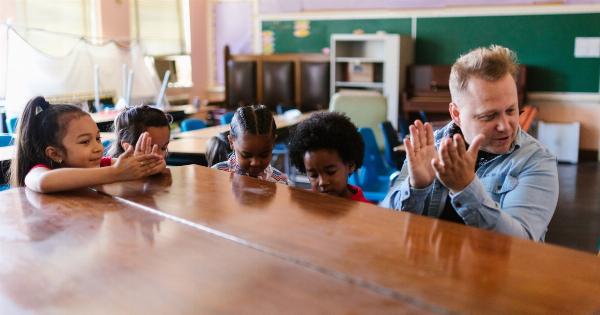Music is a universal language that has the power to connect people from all walks of life. It has been an integral part of human culture since ancient times and continues to play a significant role in our everyday lives.
From soothing melodies to upbeat rhythms, music has the ability to evoke emotions and create a sense of joy and happiness.
But did you know that music can also have a profound impact on a child’s personal development? In this article, we will explore how music can help kids in their personal growth and why it is essential to incorporate music education into their lives.
1. Cognitive Development
When children engage with music, it stimulates their brain and enhances their cognitive abilities. Research has shown that learning to play a musical instrument improves memory, attention span, problem-solving skills, and the ability to multitask.
It also develops critical thinking and helps kids become more creative in their approach to problem-solving.
2. Emotional Expression
Music provides an outlet for children to express themselves emotionally. Whether they are listening to their favorite songs or composing their own melodies, music allows them to explore and communicate their feelings in a safe and non-verbal way.
Through music, kids can develop a greater understanding of their emotions and learn how to manage them effectively.
3. Social Skills
Participating in group music activities, such as joining a choir or playing in a band, helps kids develop valuable social skills. Working together with other musicians fosters collaboration, teamwork, and effective communication.
They learn how to listen to others, take turns, and contribute to the overall success of the group. These skills are not only beneficial in a musical context but also in various other areas of their lives.
4. Self-Confidence and Self-Esteem
Learning to play an instrument or perform in front of an audience requires dedication, practice, and perseverance. As children progress in their musical journey and achieve milestones, their self-confidence and self-esteem soar.
They learn to appreciate their abilities and gain a sense of accomplishment, which transfers to other aspects of their lives. Music empowers kids and instills in them the belief that they can achieve anything with hard work and determination.
5. Discipline and Time Management
To excel in music, children need to develop discipline and good time management skills. Regular practice sessions and adhering to a practice schedule teach kids the importance of commitment, consistency, and prioritizing their time.
They learn to manage their time effectively, setting aside dedicated slots for practice, which can be transferred into their academic and personal lives.
6. Cultural Awareness
Through music, children are exposed to different cultures, traditions, and musical genres from around the world. It broadens their horizons and promotes cultural awareness, empathy, and acceptance.
They gain a deeper understanding and appreciation for diversity, fostering a more inclusive and tolerant society.
7. Academic Performance
Several studies have shown a positive correlation between music education and academic performance. Learning to read music notation, rhythm, and understanding musical concepts enhances children’s mathematical and analytical skills.
It also improves their language development and verbal memory. Music stimulates various regions of the brain, supporting overall cognitive development, which in turn contributes to better academic outcomes.
8. Stress Relief
Music has a therapeutic effect on children’s mental well-being. In today’s fast-paced and often stressful world, music provides a much-needed escape and serves as a form of stress relief.
Listening to calming melodies or engaging in musical activities helps reduce anxiety, elevate mood, and promote relaxation, leaving children feeling rejuvenated and refreshed.
9. Motor Skills and Coordination
Playing a musical instrument requires the simultaneous coordination of multiple actions, such as reading notes, controlling breathing, and manipulating fingers or hands.
This enhances children’s fine motor skills, hand-eye coordination, and overall motor control. They learn precision, dexterity, and the ability to synchronize their movements, which can transfer to various other physical activities they engage in.
10. Lifelong Passion and Enjoyment
Introducing music to children at an early age ignites a lifelong passion and love for music. It becomes an integral part of their identity and a source of joy and enjoyment throughout their lives.
Whether they pursue a professional career in music or simply indulge in it as a hobby, music remains a constant companion that brings them immense pleasure and fulfillment.
In conclusion, music has a transformative impact on a child’s personal development.
It enhances cognitive abilities, promotes emotional expression, fosters social skills, boosts self-confidence, cultivates discipline and time management, develops cultural awareness, improves academic performance, provides stress relief, enhances motor skills, and sparks a lifelong passion for music. Therefore, it is essential to incorporate music education into the lives of children, as it lays the foundation for their holistic growth and overall well-being.































